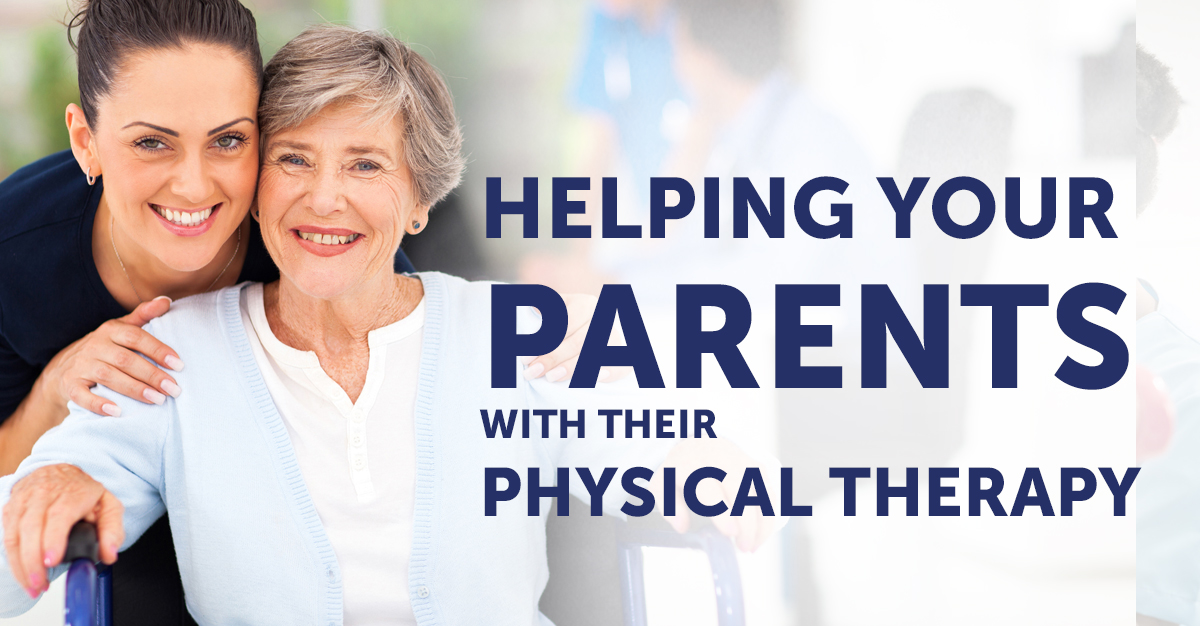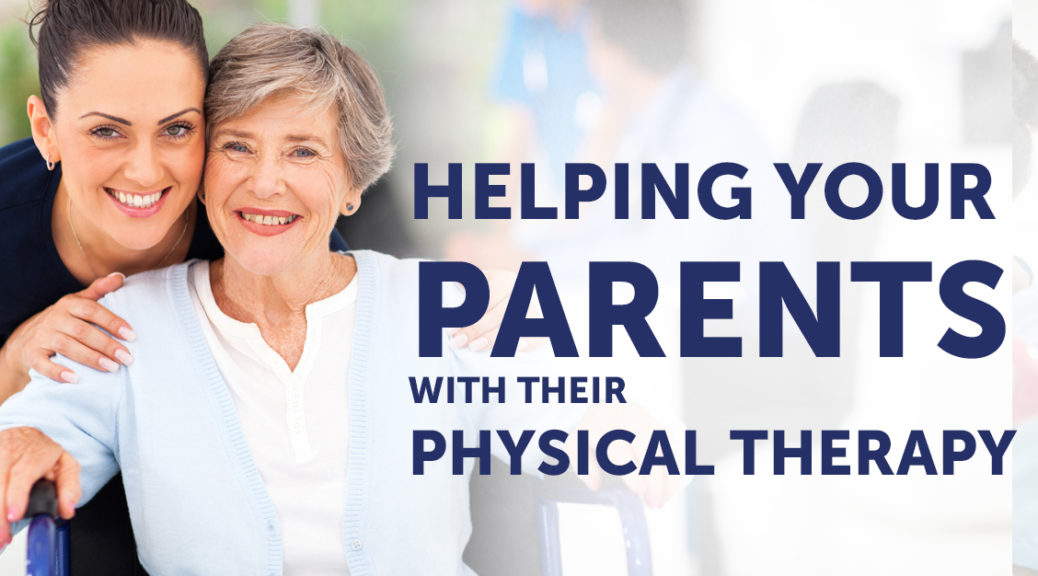
As our parents get older, they are faced with all kinds of challenges, mostly pertaining to their health. These challenges include reduced mobility and increased pain in the limbs, joints, and muscles, as well as an increased risk of injury.
Many senior adults are in physical therapy to recover from surgery, a fall or other accident. A significant number of seniors will also choose physical therapy as a way to improve their overall mobility and actually prevent falls from happening. If you have a parent who is undergoing physical therapy, here is how you can help your parents with their physical therapy and make the most of recovery.
Be aware of the benefits
If you have ever suffered an injury that has kept you more or less tied to your house for over a week, you know just how frustrating it can be to have a limited ability to move.
Improved mobility is not the only benefit of physical therapy – there is also pain relief. If your parents suffer from chronic pain, PT can help them manage it, or even significantly improve it.
In elderly patients, especially, this kind of improvement can have a tremendous effect on the quality of life, helping them cope with all aspects of life better. As chronic pain often limits the elderly from getting out and about, they can become isolated, and even sink into depression. PT is a great way to help them find relief and improve their life
This is why physical therapy is so important, and why you need to encourage your parents not only to attend every session but also to adhere to the advice and guidelines the therapist prescribes. Even if this is an inconvenience at times – especially in that case – you need to ‘be the parent’ and keep on encouraging them to stick to the prescribed regime. Do what you can to help your parents manage through their PT sessions until the benefits are clear to everyone.
Help them get there
When it comes to physical therapy, one of the biggest challenges for elderly patients, is actually getting from their home to their appointment.
And while they can certainly perform some, if not all, of the exercises at home, it is important that they are seen by a therapist. Professional help is there to monitor progress, make sure that the exercises are performed correctly, correct the exercise plan when necessary, and prevent any injuries.
To help your parents from missing an appointment here or there, the best thing you can do is set up a plan for them to make it to each session. If you or a family member can’t drive them every time, arrange a taxi or an Uber to help them get there. You can even establish a schedule with a specific driver, so you always know there will be someone to get them there. There are also specialized services for the transportation of elderly patients, so you can check them out as well.
Understand what is covered by insurance, and what isn’t
Insurance can be difficult to understand, and you might need to double-check what your parents’ plan will cover, and what is not included. Make sure to inform yourself on the issue well, as there may be certain aspects of therapy that are not covered by the insurance company.
Once you have all the facts, talk to your parents’ PT and their doctor and come up with the best plan that is either covered by insurance, or which you can pay for yourself. Be honest with them about your means, but make sure your parents are getting what is best for them.
Make sure they are safe at home
If your parents have difficulty moving around, you need to make sure they don’t injure themselves further. This can be tricky, as some elderly patients will be stubborn and try to act as if the injury is simply not there.
Try to fall-proof your parents’ home as much as you can. If they need to adjust their bathtub or shower, or the layout of the furniture, help them do that and get rid of any carpets or clutter that might trip them up.
You should also equip them with an assistive device that can support them while walking around, especially when they are going out of the house. We work with our patients to adjust their assistive devices to reduce the risk of falls and make sure they’re getting the most benefit from the device that they’ve chosen. Also, try to help them understand that all these precautions are there to help them, not make them feel less like themselves.
The most important thing you need to keep in mind is that the more you communicate with your parents about their physical therapy, the better you will be able to help them. Talk to them often, and be there when you can – they will appreciate it, even when they don’t say it outright.
Find a physical therapist that is convenient for your family.
![]()

